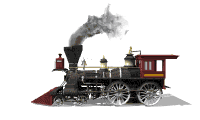
Remarks by CIA Director John Brennan As Prepared for Delivery at the President's Associates Dinner at the University of Oklahoma
Remarks by Central Intelligence Agency Director John O. Brennan as prepared for delivery at the President's Associates Dinner at the University of Oklahoma
February 26, 2014
LIFE AT CIA
Tonight I want to describe some of the main security challenges facing our Nation. But first I want to give you a sense of what life is like inside the CIA—not only what we do, but who we are.
I thought I would begin with one of the most important things I do as Director.
Every month, I go down to the main lobby at our Headquarters in Langley to swear in our latest recruits. I am always struck by the quality of these women and men. Many speak several languages. Some have already had successful careers in the private sector and now want to give something back to their country. For all of them, this moment is the culmination of years of hard work, and you can see the enthusiasm in their eyes: they look focused, confident, and eager to make a difference.
As I watch them raise their right hands, I feel an extraordinary sense of obligation to these officers. They have chosen a profession that is filled with great rewards, but also steep challenges—and, sometimes, grave danger. And it is my job to prepare them for it.
Of all my responsibilities as Director, my first priority is to make sure these officers have the best possible training, guidance, and support, and to pass on the values that were instilled in me when I embarked upon my intelligence career. From day one, I want them to understand that they are joining more than an organization; they are also joining a tradition of service and sacrifice unlike any other in government.
For this reason, I always administer the oath of office in front of our Memorial Wall. There are 107 stars on that wall, each one representing an Agency hero who made the ultimate sacrifice on behalf of our Nation. You should know that one of them, Freddie Woodruff, was a native of Weatherford, Oklahoma.
Freddie was one of our finest officers. I had the privilege of knowing and traveling overseas with Freddie in 1991. He was a good ole boy from Oklahoma, a consummate intelligence officer who was dedicated to serving his country and his fellow Americans until he was killed overseas in 1993. For those of us who knew Freddie, his star and many other stars of friends and colleagues have special meaning.
I tell our new officers that these are not only heroes like Freddie from decades past, but also from the very conflicts in which we are currently engaged. And I emphasize that we all have a responsibility to remember the officers represented by those stars, and to carry on their work in a way that would make them proud.
I am sharing this with you because it underscores a defining trait of CIA: our profound commitment to one another and to the Nation we serve.
For more than six decades, the women and men of CIA have devoted themselves to protecting our Nation and to advancing American interests around the globe. Their contributions often go unrecognized, but CIA officers are essential to the strength and security of our republic. Let me tell you a little bit about them.
CIA officers represent a host of social, professional, and educational backgrounds, and they come from every state in the Union, including this one. More than 160 of our current employees were born in Oklahoma, and more than 80 graduated from OU. Another 70 or so have degrees from other colleges or universities across the state.
CIA officers do not fit a single mold. But they share certain qualities. They tend to be inquisitive, smart, well rounded, and exceptionally patriotic. And they work incredibly hard.
By 9:00 am, when most Americans are starting their workday, the parking lots at CIA have long been full. And by the time most people are sitting down to dinner, our offices are still buzzing with activity.
Even late at night, you can still feel the energy in our hallways. There is always something going on, usually something that requires urgent attention. Each day’s work comes with a heavy dose of adrenaline.
And that’s just at CIA Headquarters. We have folks serving all over the world, many in not so glamorous places.The men and women in the field often are separated from their loved ones for extended periods of time, and the sacrifice these folks make are real. There is no finer group of patriots than the officers at CIA.
Back in 2005, I retired from the CIA after 25 years of service and entered the private sector for a few years. And while I enjoyed my work and learned a tremendous amount, something was always missing. Intelligence work had gotten in my blood. It had become more than what I did for a living; it had become part of my identity.
I am not alone in this regard. The same sentiment explains why people serve at CIA for 30 or 40 years, even longer—and why many come right back after retirement to serve as contractors, with some continuing to work part time into their nineties. Few professions command this sort of loyalty.
The devotion of our officers is a major reason why CIA has accomplished so much over the decades. Indeed, since its founding in 1947 and throughout the many years of the Cold War, CIA has been indispensable to our Nation’s security, never more so than in the period since 9/11.
For more than a dozen years, America has been at war. And from the very beginning, CIA officers have been there to help lead the way.
Only 15 days after 9/11, CIA officers put their boots on the ground in Afghanistan. CIA provided vital assistance to our men and women in uniform during the toughest days in Iraq. And CIA was at the forefront of the effort to bring justice to Usama Bin Ladin.
Today, CIA officers remain at the center of the fight, and they stand ready to serve wherever their country needs them. And the truth is, their country has never needed CIA more.
SECURITY CHALLENGES FACING AMERICA
After more than 30 years in this business—nearly half the length of the CIA’s existence—I can tell you that the sheer variety of security challenges confronting our Nation has never been greater than it is today.
The catalog of front-burner issues is truly staggering—terrorism, weapons proliferation, cyber threats, war in Afghanistan, the conflict in Syria, tensions on the Korean Peninsula, and the list goes on and on.
While I obviously cannot delve into all of these issues tonight, I thought I would describe a few of the challenges that cause us the greatest concern, tell you about CIA’s role in helping policymakers meet these challenges, and set the stage for our question and answer session.
Let me begin with counterterrorism. In South Asia, core al-Qa‘ida has been under siege for several years now—going back even before the death of Usama Bin Ladin—and its capabilities have been seriously degraded.
But there is no question that the overall threat of terrorism is still with us. As al-Qa‘ida franchises, affiliates, and other extremist groups have become more active, the terrorist threat has become more diverse, decentralized, and dispersed.
In Yemen, al-Qa‘ida in the Arabian Peninsula enjoys a safe haven where it can train operatives, collect resources, and plot the murder of innocent civilians. It has already attempted to carry out several attacks against Western targets, both inside the United States and overseas. And it appears intent on doing so again.
In North Africa and the Middle East, political instability and civil unrest are leading to a growth in ungoverned spaces, which provide refuge for extremists bent on undermining the new governments in the region. Left untouched, these spaces could also turn into staging areas for terrorist attacks against the West.
Moving to sub-Saharan Africa, we see vast stretches of territory that are becoming incubators of extremist and rebel groups, many of which are using terrorist tactics to advance their agendas.
Though circumstances vary greatly from country to country, the underlying social and political trends in much of the region are not encouraging. Corruption is rife; political institutions are fragile; government services are inadequate; criminal networks are gaining strength; and an expanding population of young people—what demographers are calling a “youth bulge”—is coming of age with limited economic opportunity.
To make matters worse, governments in this region often lack the capability—and in some cases the will—to aggressively go after the violent extremist groups that are taking root.
Moving on from terrorism, cyber security was part of my portfolio when I served at the White House, and I must admit that after a while, just hearing the word “cyber” was enough to make my head hurt.
Part of what makes cyber so challenging is that technology is changing so rapidly—and society along with it. In many respects, the world is transforming itself before our eyes, as more and more human activity migrates to the Internet.
This has profound implications not only for how each of us conducts our daily lives, but also for the way CIA carries out its mission. Terrorists, criminal networks, weapons proliferators, state actors—all of them are entrenched in the digital domain.
For example, we are seeing a greater interest on the part of our cyber adversaries in critical infrastructure. The systems that help manage oil and gas pipelines, water distribution networks, and electric power grids are attractive targets for cyber attacks. Some of the newer systems include safeguards that help protect against the threat, but a large amount of the “legacy” infrastructure is vulnerable. A successful attack on these systems could disrupt lives and have a significant impact on our economy.
We also are concerned that new vulnerabilities will develop as cars, home appliances, and other physical objects become more integrated into information networks. As we move closer to what some are calling an “Internet of Things,” there will be more devices and systems to protect—and, equally worrisome, more that can be used to launch attacks.
And most imminently, there are the ongoing threats to businesses—the efforts to intercept communications, shut down networks, and harvest know-how from American companies—including companies in Oklahoma. These efforts are becoming increasingly sophisticated, and they pose a growing challenge to both the competitiveness of American industry and the prosperity of our economy.
On all of these cyber fronts, CIA plays an integral role by providing policy makers and cyber-security experts intelligence on potential cyber attacks. We undoubtedly will be doing more of this work in the future.
Finally, a few observations on “hot spots” overseas, such as Syria, which is an exceedingly complex issue—perhaps the most complex issue in foreign affairs today. I say this because it brings together so many challenges in one place: civil war, chemical weapons, sectarianism, extremist groups, a fragmented opposition, a major refugee and humanitarian crisis, competing interests of the international community, and well over 100,000 deaths.
And Afghanistan, where we continue to draw down our military forces and make plans to build upon the tremendous and painful investment of blood and treasure over the past dozen years so that that region of the world will never again give birth to devastating terrorist attacks like we witnessed on 9/11.
And Iraq, where the still fledgling government in Baghdad is dealing with an upsurge in terrorist attacks of unspeakable brutality while preparing for elections that will keep that large and strategically important country on a democratic path
And Iran, where a worrisome nuclear program has galvanized world attention and generated intense diplomatic efforts by the United States and five other world powers in search of an enduring agreement with the government in Tehran.
Finally, we are witnessing the emergence of new governments resulting from the Arab Spring—such as in Egypt, Libya, Tunisia, and Yemen.
Overall, I think everyone would agree that the transition away from authoritarian rule in these countries has been unsteady and fraught with challenges. There has been some progress, but life under the new governments has often been plagued by sectarian tensions, enduring economic problems, popular unrest, and general instability.
Looking ahead, our assessment is that the political uncertainty of the past few years will most likely continue in 2014. This could make it harder for those in power to enact much needed economic reforms, many of which are politically unpopular and likely to impose hardship on people who have already endured much suffering.
But let me add that no one expected this process to be easy. Transitions to representative government are never seamless or easy, and they typically play out in unpredictable ways. The recent setbacks may be disappointing, but they are by no means irreversible.
ROLE OF CIA / SUPPORT FOR POLICYMAKERS
Meeting these and other challenges will require constant vigilance on the part of our government, and the flexibility to respond quickly to even the slightest hint of a crisis, no matter where it unfolds.
As you can well imagine, the policymakers responsible for our national security have exceedingly difficult jobs. Understanding the challenges and threats before us is tough enough, but policymakers have to go one step further—they have to come up with strategies to deal with them successfully.
As a former policymaker myself, I can tell you that this can be a humbling experience. Success depends on countless variables, but in my experience, it depends on one thing above all else: good intelligence and insightful analysis. And that is where CIA comes in.
Our core job at CIA is to collect, uncover, discover, elicit, and obtain secrets that have a direct bearing on the national security of the United States. It is also our responsibility to make sense of them for policymakers through rigorous, painstaking analysis. Every day, we provide what we call “decision advantage.” We warn policymakers about developing threats, alert them to opportunities to protect and defend our national security, and help them understand the trends that are shaping events in every region of the globe.
Our intelligence is a cornerstone of almost every aspect of national security policy, from military action to diplomacy to international law enforcement. Indeed, our information is crucial to developing effective policies for all of the national security challenges we face.
But CIA does more than collect and analyze information. At the direction of the President, we also carry out covert action, which enables the President to take action abroad in ways that help achieve US national security objectives while hiding the hand of the US government.
I obviously cannot say much about it in a public forum like this one, but let me just say that every President since our Agency’s founding—Democrat and Republican alike—has directed CIA to help advance U.S. interests through covert action.
And it is not hard to see why. When military intervention is off the table and diplomacy is not enough to get the job done, the President must have an alternative. Covert action provides it. Simply put, it is an essential element in the President’s toolkit. And it is a function that CIA has been authorized to carry out.
Covert action also is the CIA mission that is subject to the most controversy, speculation, and criticism. And while CIA is not a perfect organization—I readily admit that we have made mistakes and have learned from them—let me caution you against believing everything you might read or hear about the purported failings and inappropriate activities of CIA, NSA, and other elements of your Intelligence Community. CIA and the rest of the Intelligence Community do not operate in a vacuum. The elected representatives of the American people and our congressional oversight committees oversee these covert activities and ensure that they are being carried out effectively, lawfully, and successfully.
CONCLUSION
Those are the broad outlines of CIA’s mission. It sounds pretty straightforward, but to make it work, we have to bring together officers from a vast array of disciplines.
Everyone hears about the CIA undercover officers who collect our intelligence, and the analysts who piece it together. But they are only part of the story. We also depend on scientists, engineers, linguists, accountants, financial experts, technologists, security personnel, support specialists, and many, many others.
These are the miracle workers of CIA—the ones who get our people safely where they need to be, supply them with the tools to complete the mission, and make sure our organization runs as smoothly as possible.
Every day at CIA, an amazing collection of officers goes to extraordinary lengths to keep our Nation safe. They ask for little in return. By nature, they are a remarkably modest and self-reliant group. But one thing they do need is your support.
So in closing tonight, I want to make a simple plea: Regardless of your political persuasion—regardless of your views on the policies of this administration or the last one—please remember that America’s intelligence officers—your fellow Americans, including Oklahomans—are out there working tirelessly on our Nation’s behalf.
I know that you and your fellow citizens are in their thoughts. And I hope that you will keep them in yours.
Thank you very much. And now I will turn it back over to President Boren.
Posted: Feb 26, 2014 09:31 PM
Last Updated: Feb 27, 2014 02:51 PM










































































































No comments:
Post a Comment